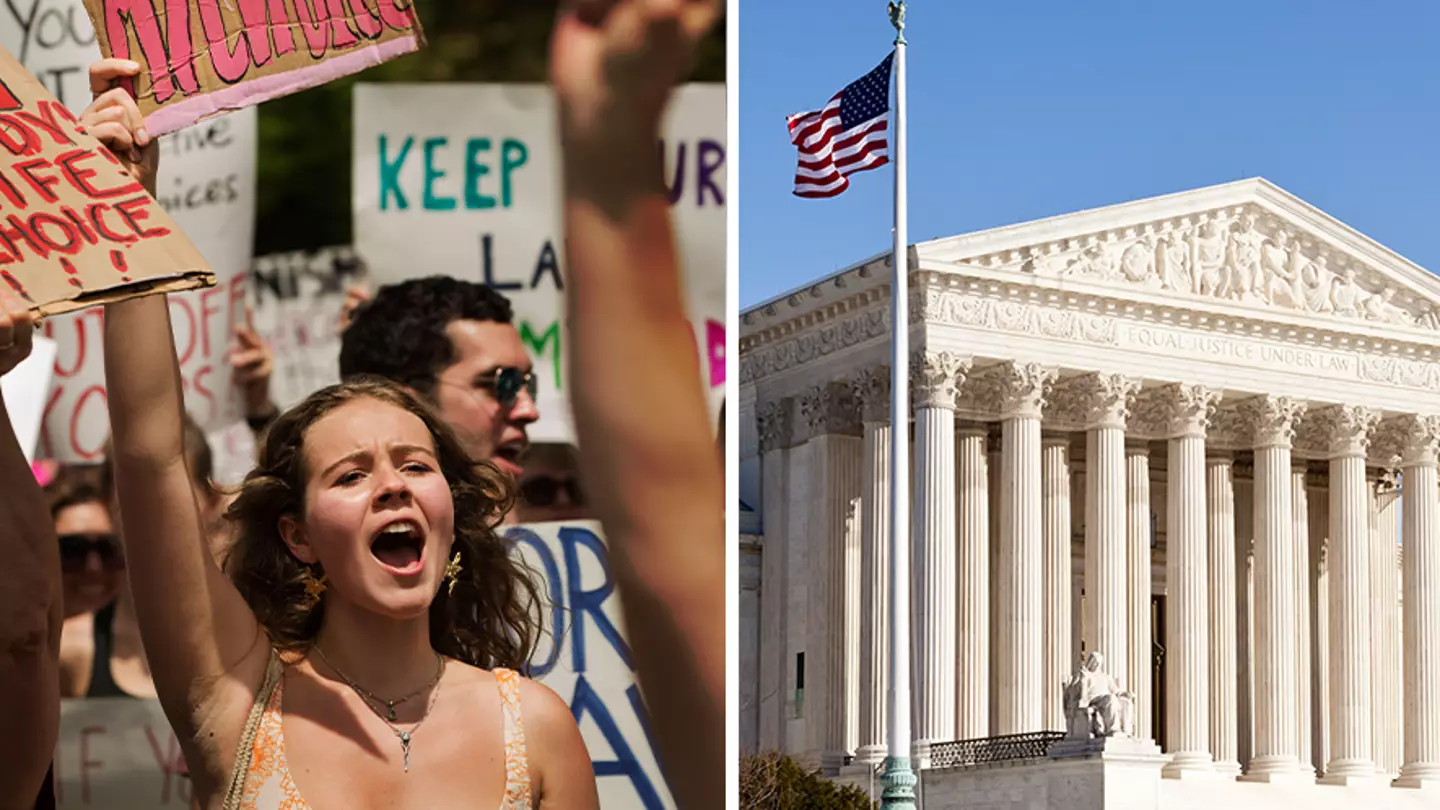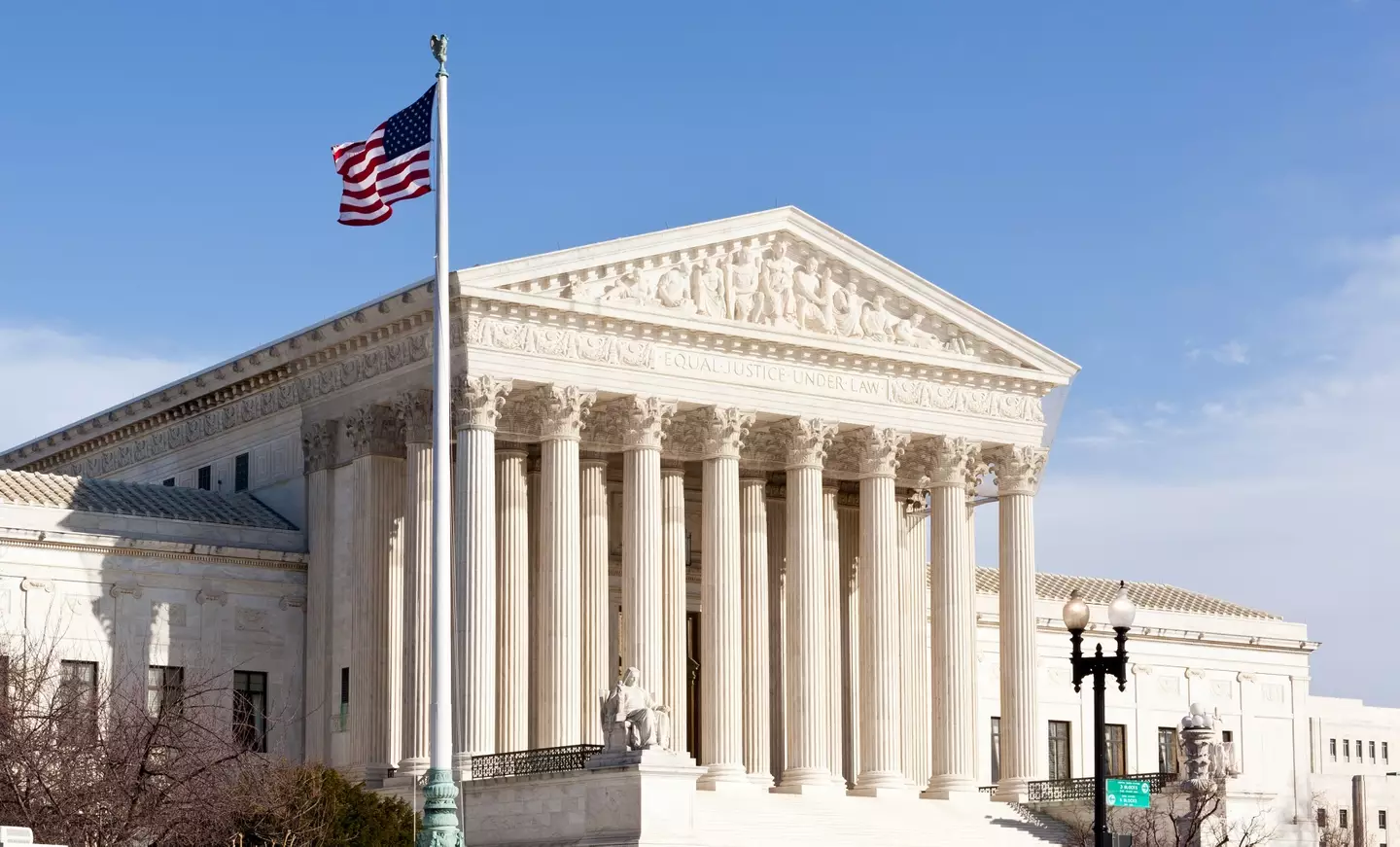
For decades, Americans have spent 4 July celebrating their country's independence.
But after Roe v Wade was overturned and millions of women lost their chance to make independent decisions about their own bodies, many are asking the question: what is there to celebrate?
On 24 June, five justices made it illegal for those millions of women to get an abortion if they live in a state that enforces the ban.
The vote sparked outrage across the country, resulting in protests and petitions as well as sparking fears about what rights the Supreme Court might go after next. Some people drew attention to recent mass shootings and argued that women now have fewer rights than guns; others vowed to help those who could not legally access abortion services.
There are more than 90 million women of reproductive age in the US; 576,000 transgender men and 1.2 million adults who identify as non-binary – many of whom will also be affected by the ban.
Advert
America is depicted as 'the land of the free', a place to realise a 'dream' and the home of 'liberty and justice for all', but many feel the overturning of Roe v. Wade proves this is simply not the case.
With their own independence seemingly crumbling, increasing numbers of people are boycotting their country's independence on 4 July.
Texas resident Ali, a 30-year-old purchasing agent who uses 'she/they' pronouns, originally planned to go to a BBQ with her family for 4 July, but now does 'not feel there is a reason to celebrate'.

Speaking to Tyla, Ali said: "What freedom am I supposed to celebrate when one of my basic human rights has been stripped from me?"
The 30-year-old said she is 'more so in mourning, which means no celebration' on 4 July. She describes herself as being 'absolutely devastated' about the overturning of Roe v Wade, and said in the days since she has felt 'everything from fear, anger, and denial'.
"It doesn’t even feel real to me right now," Ali said, adding: "I know that this will impact many people's lives and it makes me uneasy."
Instead of filling up on burgers and hotdogs this Monday, Ali plans to take the day for herself and her partner. She will wear black, avoid going to the shops and is considering going to a protest, if she can find a 'safe one'.
Ali is far from the only American choosing not to celebrate on 4 July.
On Twitter, attorney Ashlie Weeks shared her plans as she wrote: "I won't be celebrating [4 July] this year as I have no independence in this country. I also don't make as much [money] as my peer male lawyers, my menstruation isn't covered by health ins, I pay more in interest rates & I'm unsafe & harassed constantly-anywhere. Hard pass for me."
A second Twitter user commented, "[I] will not be celebrating 4th of July this year because you won’t catch me celebrating a country that won’t protect my rights," while a third posted: "I won’t be celebrating 4th of July this year, or any other year at this point. America doesn’t deserve a holiday to celebrate its freedom and independence if they’re gonna take it away from its own citizens."
Rather than feelings of patriotism and excitement over some nice fireworks, Sarah, a social worker also from Texas, said she is feeling 'anger, sadness, exhaustion [and] disgust', as well as fear for those who are 'forced to carry pregnancies to term in a state that doesn’t care to support adults or children post-birth'.
Having worked with uninsured or underinsured women, and trans and gender non-confirming or non-binary Texans, Sarah is anticipating 'significant mental health consequences' for affected people as a result of the Supreme Court's ruling.

"Most obviously, for those that find themselves pregnant and unable to access abortion care, we’ll expect to see depression, anxiety, and trauma-related disorders due to being forced to carry a pregnancy to term.
"And even for those who are not pregnant, there will be the anxiety of the possibility of becoming pregnant and not having options," she told Tyla.
For those who are forced to carry a pregnancy to term, Sarah anticipates 'possible trauma of placing a child for adoption or navigating the insurmountable financial challenges of raising a child'.
It's clear to see why people are reluctant to celebrate right now, and rather than focusing on the potential benefits a ban might have for a future child, Sarah believes we should instead be focusing on the future of the pregnant person, as even carrying a baby can come with significant risks.
"People with wombs are just that: people," she said. "And no person should be forced to endure something with life-long implications like pregnancy."
Even those who disagree with the overturning of Roe v Wade might try to distract themselves this 4 July by getting together with family and having parties, and of course everyone should be entitled to enjoy the day if they want to.
But while acknowledging the independence of the country, take a moment to consider those in it and acknowledge that not everyone has the same luxuries.
Topics: Sex and Relationships, News, Health
